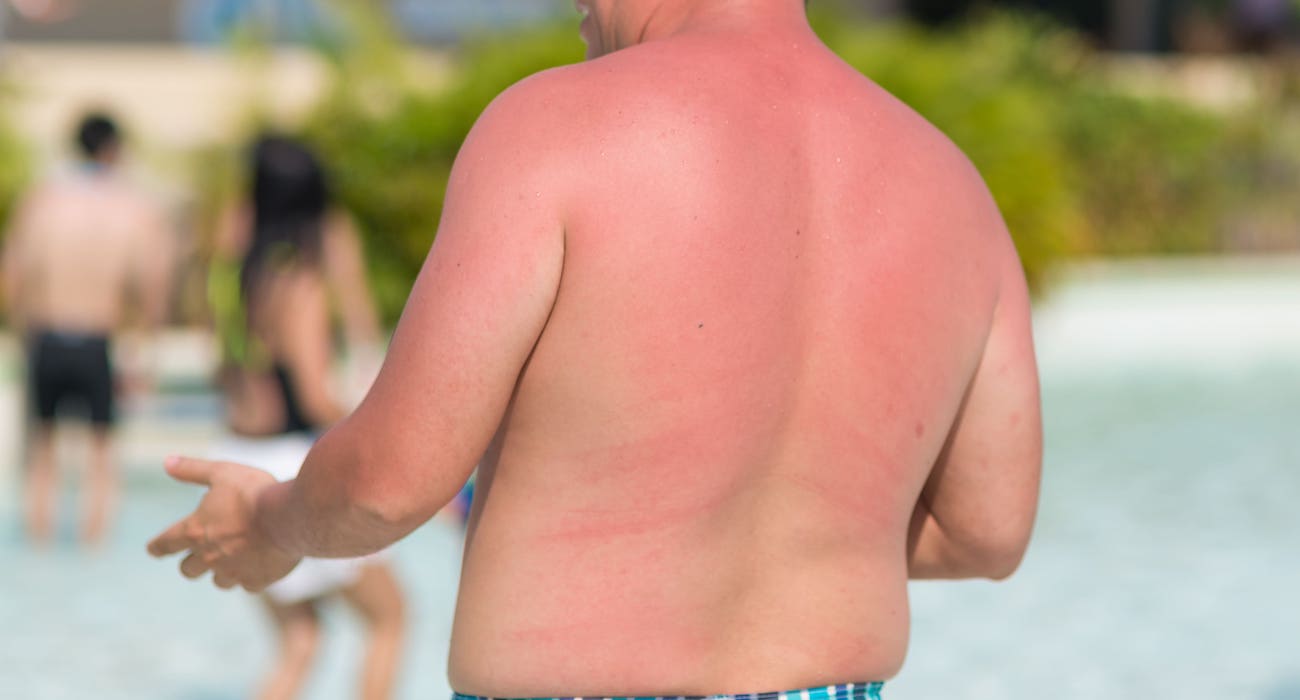Sunburn can be more than just a summer skin irritation — it can also present a significant health risk.
According to California-based dermatologist Dr. Emily Newsom, sunburn is not technically a burn but “an inflammatory response to UV damage to the skin,” USA Today reported.
The symptoms of sunburn usually appear a few hours after too much sun exposure. It is characterized by swelling, small fluid-filled blisters, and pink or red-hued skin. Pain or itching is often felt in the area, which can be warm to the touch. In severe cases of sunburn, fatigue, headache, fever, and nausea can manifest.
Any part of the skin that is fully or partially exposed to the sun is susceptible to sunburn, including the lips, scalp, and eyes. When the eyes burn, they can feel gritty and painful.
“Both sunburn and tan are not healthy or good. So what a tan is — is your body produces melanin and melanin is a pigment. And so a tan is your body is trying to protect itself,” Newsom told USA Today.
Although people with dark skin have naturally occurring melanin, they can still get sunburned.
Prevention
The best advice on how to deal with sunburn is to prevent it from happening in the first place.
The sun’s rays are strongest between 10 a.m. and 4 p.m., so applying sunscreen often and generously during that time period can be crucial to preventing sunburn.
The Mayo Clinic recommends using sunscreen with a minimum SPF of 30. However, no lotion or spray can block 100% of the sun’s rays. Wearing wide-brimmed hats, sunglasses, and a shirt or some kind of cover-up while out in the sun is advised.
Yet some summer clothing might be providing less protection than we think.
Protection depends on the type of fabric, color, and clothing fit, according to the Skin Cancer Foundation. Dark-hued fabrics like denim or polyester can offer more protection than light-hued cotton and linen. Fit is also important since super-tight clothing stretches, allowing more UV radiation to reach the skin. Moreover, wet clothing also allows more of the sun’s rays to pass through than dry clothing.
Treatment
Despite one’s best efforts, sunburn can still happen — sometimes in just a few minutes of unprotected sun exposure.
The symptoms can last three days to a week in mild to moderate cases.
To treat sunburn, apply a cooling gel or lotion such as aloe to the inflamed area and take nonsteroidal anti-inflammatory drugs like ibuprofen. Staying hydrated by drinking water is also crucial, as it helps the skin to heal. As The Dallas Express previously reported, adequate hydration is especially vital during hot weather.
In the event of blisters, popping them might slow the healing process and increase the risk of infection. If this does happen, applying a wet bandage after cleaning the area with soap and water is recommended. Likewise, vigorously peeling dead skin is not advised.
Food for Thought
Whether indoors or out and about, some experts claim applying sunscreen should be a staple of everyone’s daily routine regardless of the season.
“You can have damage throughout the year. Even in the car, UV light goes through window glass and the car manufacturers only put UV protection in the windshield, not on the sides,” Newsom told USA Today.
Certain medications and cosmetics can also create photosensitivity, making some people more prone to sunburn. According to the Mayo Clinic, users of cosmetics that contain alpha-hydroxy acid and takers of antibiotics, nonsteroidal anti-inflammatory drugs, and cholesterol-lowering drugs should pay particular attention when out in the sun.
UV light can also harm the body’s DNA, leading to skin cancer over time.
Skin cancer is the most common type of cancer, with approximately 5.4 million new diagnoses logged each year in the United States, according to the American Cancer Society.
Melanoma is the most dangerous type of skin cancer, with approximately 186,680 new diagnoses predicted in 2023 in the U.S., per the Skin Cancer Foundation. Some research has also suggested a correlation between obesity and the prevalence of melanoma. Such findings mirror other studies pointing to obesity as a risk factor in developing certain cancers, as The Dallas Express previously reported.







Trackbacks/Pingbacks